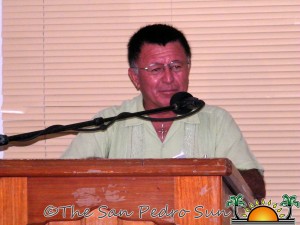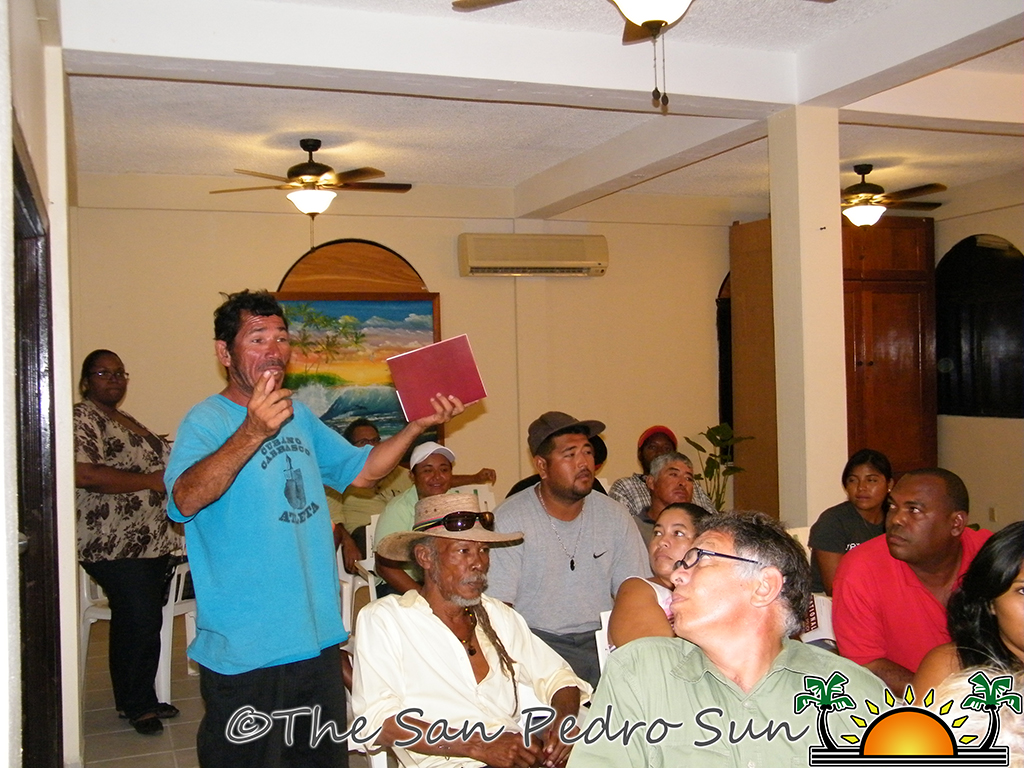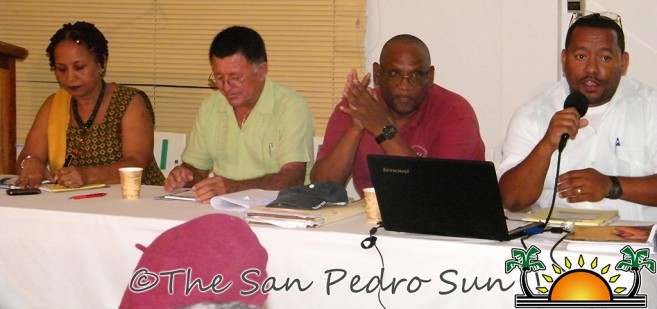The National Institute for Culture and History (NIC) is hosting consultations country wide to get the community input in developing a National Cultural Policy (NCP). On Wednesday August 22nd many artisans, musicians and other interested people were engaged in such a consultation at the Sun Breeze Conference Room. Coming up with an NCP for Belize will help develop the country’s cultural heritage industry in an effort to promote Belizean culture.
“When we talk about performance and the arts we must emphasize ‘Excellence.’ Our work cannot be poor and expect people to buy them just because it is Belizean.”
Speaking at the event was Director of the Institute of Social and Cultural Research, Nigel Encalada, who explained that the guiding principles for the NCP is the identification of elements which should be constituted and included in the linkages between culture and development. As such, the NCP will be the roadmap that policy makers will use to provide support for culture, arts and its expressive creativity for the next 10 years. It will also provide cultural stakeholders with a common strategic direction and rationale for current and future investment. It is also geared to challenge Belizeans to be more culturally creative in developing new industries that can better connect to mainstream society in order to promote greater productivity. The NCP should reflect all areas of culture including but not limited to food, music, dance, arts and craft, language, talent, book publication; just about anything that is a part of Belizean culture.
 The plan to come up with a NCP has the support of the Minister of Tourism and Culture Hon. Manuel Heredia Jr. In delivering his official remarks on the NCP consultations, which he chose to deliver at the event in San Pedro Town, Heredia said that “It is our belief that a National Cultural Policy, conducted within this framework can greatly benefit Belizeans both today and in the future. We are persuaded that not only will those directly involved benefit as the ‘culture industry’ grows within our borders, but that the quality of life for all of us will improve as people throughout the world recognize and come to appreciate the beauty of the cultures of Belize and its people.” Heredia added that “It is our desire then to create here in Belize an atmosphere that is conducive to, and supportive of, the development and wise management of cultural heritage. This is the goal to which we commit ourselves.”
The plan to come up with a NCP has the support of the Minister of Tourism and Culture Hon. Manuel Heredia Jr. In delivering his official remarks on the NCP consultations, which he chose to deliver at the event in San Pedro Town, Heredia said that “It is our belief that a National Cultural Policy, conducted within this framework can greatly benefit Belizeans both today and in the future. We are persuaded that not only will those directly involved benefit as the ‘culture industry’ grows within our borders, but that the quality of life for all of us will improve as people throughout the world recognize and come to appreciate the beauty of the cultures of Belize and its people.” Heredia added that “It is our desire then to create here in Belize an atmosphere that is conducive to, and supportive of, the development and wise management of cultural heritage. This is the goal to which we commit ourselves.”
Minister Heredia also agreed with many of the participants who said that Belize is rapidly losing the cultural fabric. In his remarks Heredia said that while we are losing our culture, the time to share inputs to rescue the little of what is left of the Belize culture is now. “We are losing many of our cultural activities and this is because when we educate our children we forget to teach them our history, where we came from and who are our peoples. We must therefore ensure that Education is fundamental to understanding and appreciating culture. This is the time when we need to speak up. This is the time when we can contribute to something very important in our daily lives.”
 Much was the input received from the island residents, who suggested that first and foremost, the island should get a House of Culture that could address some of the obstacles in the way of preserving the island’s culture (which plays a very important role in the overall cultural aspect of the country). Ideas such as putting a country’s brand to fully Belizean-made products, the support and preservation of existing musicians, promotion and preservation of food and language, the preservation of the local history, the education of local and national cultural that will give Belizeans more pride and appreciation for Belize, the protection of Belize’s cultural market, the need for training in ways to improve cultural related products, the passing down of trades such woodcarving, the art of traditional fishing and the documentation of every aspect of culture was just a few of the many subjects that participants openly brought up to the consultation.
Much was the input received from the island residents, who suggested that first and foremost, the island should get a House of Culture that could address some of the obstacles in the way of preserving the island’s culture (which plays a very important role in the overall cultural aspect of the country). Ideas such as putting a country’s brand to fully Belizean-made products, the support and preservation of existing musicians, promotion and preservation of food and language, the preservation of the local history, the education of local and national cultural that will give Belizeans more pride and appreciation for Belize, the protection of Belize’s cultural market, the need for training in ways to improve cultural related products, the passing down of trades such woodcarving, the art of traditional fishing and the documentation of every aspect of culture was just a few of the many subjects that participants openly brought up to the consultation.
But in pointing out what is needed to improve the cultural market as part of the NCP, Heredia also cautioned that “We must make Culture central to the overall development of our country. Everything we do is culture….all our music, dances, arts, sports, food, is our culture. But when we talk about performance and the arts we must emphasize ‘Excellence.’ Our work cannot be poor and expect people to buy them just because it is Belizean.”
The suggestions were documented and will be used to formulate a final draft of the NCP. Also present at the consultation were other stakeholders involved drafting up a NCP which included the NICH President Diane Haylock lead consultant Archeologist Dr. Alan Moore.



